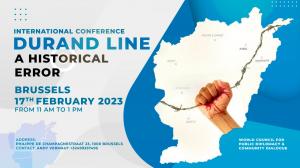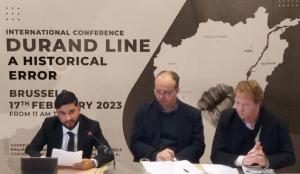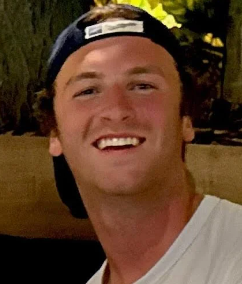

 The conference in Brussels studied the desirability of the right to self-determination for the Pashtuns on the Pakistani side of the Durand Line. The autonomy and right of self determination of the Pasthun people was discussed at the international symposium Durand Line, a historical error, held in Europe/Brussels on February 17 2023. Pakistan’s Pashtun Movement, which has...
The conference in Brussels studied the desirability of the right to self-determination for the Pashtuns on the Pakistani side of the Durand Line. The autonomy and right of self determination of the Pasthun people was discussed at the international symposium Durand Line, a historical error, held in Europe/Brussels on February 17 2023. Pakistan’s Pashtun Movement, which has... 
The conference in Brussels studied the desirability of the right to self-determination for the Pashtuns on the Pakistani side of the Durand Line.

The autonomy and right of self determination of the Pasthun people was discussed at the international symposium Durand Line, a historical error, held in Europe/Brussels on February 17 2023.
Pakistan’s Pashtun Movement, which has faced persecution and human rights violations, demands the right to self-determination.
BRUSSELS, BELGIUM, February 17, 2023 /EINPresswire.com/ — On February 17, 2023, a conference named ‘International Conference Durand Line: A Historical Error’ was held at Philippe de Champagnestraat 23, Brussels, Belgium. The panelists discussed the right of Pashtuns to self-determination, which Pakistan denies.
The Durand Line, which split relatives, families, and communities without their permission, was created in 1893. Fathers were removed from their kids, and uncles were separated from their nephews and nieces without their knowledge. These individuals were denied the right to grow socially, culturally, politically, culturally, psychologically, and educationally. Pakistan has denied them the right to free speech and association. The same country (Pakistan) that speaks about self-determination for individuals who do not live in Pakistan denies the same right to self-determination to Pashtuns who live in Punjab, Khyber Pakhtoonkhwa, and Baluchistan. Throughout its inception, Pakistan has subjected Pashtuns to torture, persecution, and repression for its own gain. Targeted and extrajudicial murders of Pashtuns are widespread in the ex-FATA region. Pashtuns have been subjected to horrific torture at the hands of Pakistan’s law enforcement and army. The Pakistani court collaborates with the Pakistani government to deny Pahtuns justice and fundamental rights. The Pakistani media is controlled and influenced by the Pakistan Army. Pashtun leaders who speak out against the establishment, police abuses, and army crimes are either imprisoned or falsely charged in order to satisfy the Pakistani government’s demands. The International Human Rights Organization and the United Nations Human Rights Council have likewise turned a blind eye to Pashtuns’ difficulties in Pakistan. Surprisingly, the international community and the West, which support the cause of human rights across the world, remain mute on the subject. The international community’s silence on Pashtuns living in Pakistan under horrific conditions is deafening. How can a country like Pakistan have double standards when demanding the right to self-determination for Kashmiris and Palestinians but denying the same rights to their own people? Everyone says it, but the agony of Pashtuns is genuine, and it has been buried in their hearts for the previous 100 years. It remains to be seen if this endeavor will have any results or whether human rights activists will once again turn a blind eye to this actual issue. In Pakistan, the Pashtun movement has been suppressed for many years. The movement has gained traction in recent years, advocating for an end to human rights violations and discrimination against Pashtuns in Pakistan. One of the Pashtun movement’s main objectives is the clearance of landmines left behind from earlier battles, which have killed and injured many innocent people, especially children. Pashtuns have been disadvantaged politically and economically, with minimal representation in government and a lack of investment in their areas, in addition to human rights violations and discrimination. The Pashtun Tahaffuz Movement (PTM), a nonviolent organization founded in 2018, has been in the forefront of Pakistan’s campaign for Pashtun rights. The Pakistani government have repressed and persecuted the movement, with its leaders and activists being targeted and arrested. Notwithstanding the obstacles, the Pashtun movement continues to advocate for change and draw attention to the situation of Pakistan’s Pashtuns. The international society and human rights groups may help by supporting the movement and pushing for Pashtun rights in Pakistan.
EUreview – Andy Vermaut
{PostVersa}
+32 499 35 74 95
[email protected]
Visit us on social media:
Facebook
Twitter
LinkedIn
Instagram
![]()
Article originally published on www.einpresswire.com as Durand Line, a historical error in Brussels on 17/02/23 explored Pasthun self-determination
originally published at HUMAN RIGHTS - USA DAILY NEWS 24

